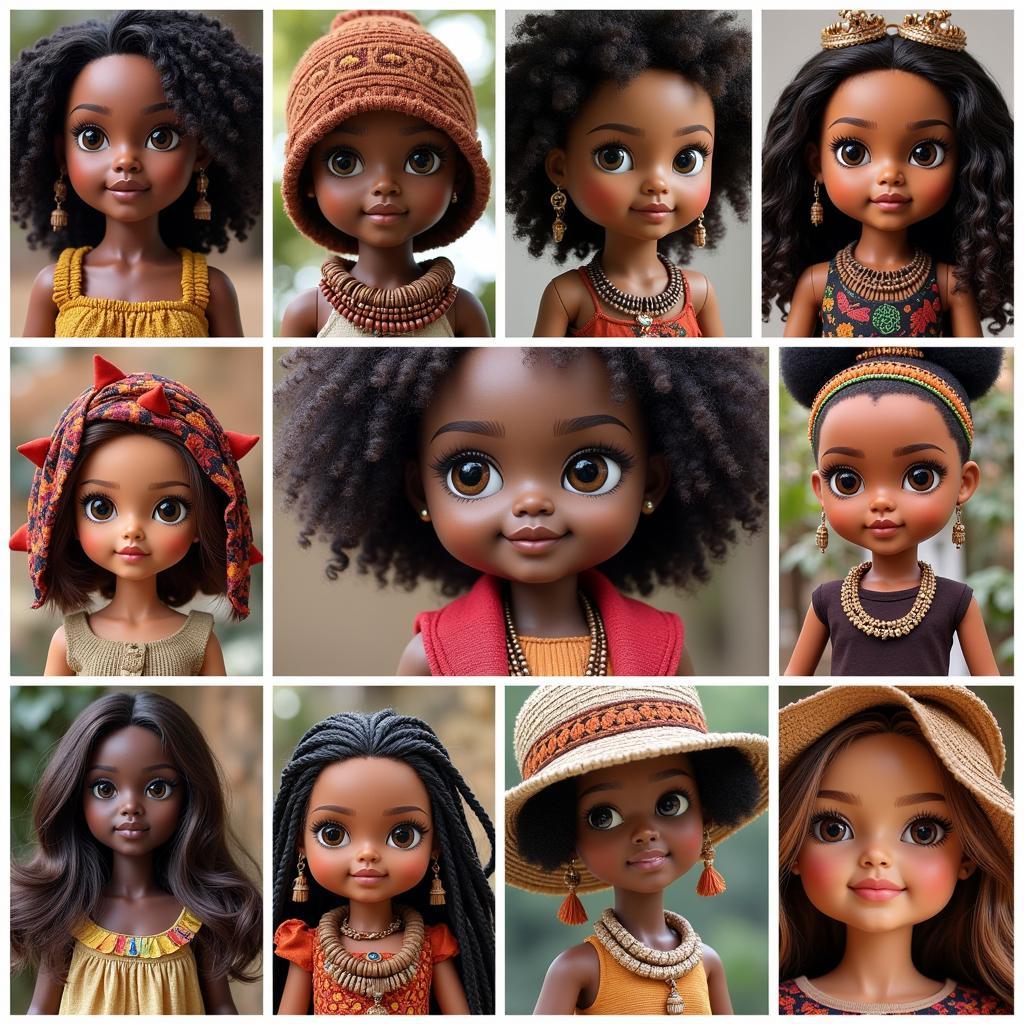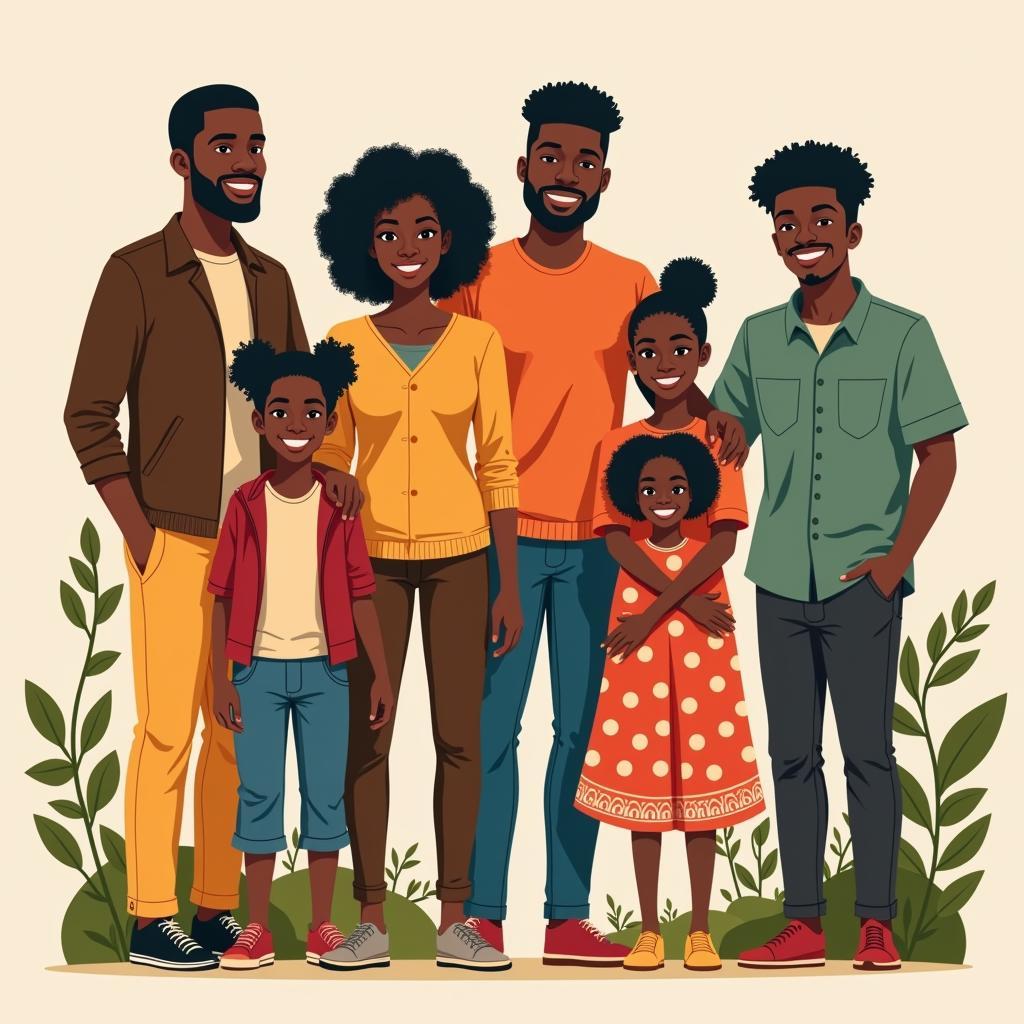African Hand Tattoos: A Journey Through Tradition and Symbolism
African Hand Tattoos hold a deep cultural significance, representing more than just body art. They are a visual language, narrating stories of heritage, spirituality, and personal identity. From intricate geometric patterns to symbolic animal depictions, these tattoos offer a fascinating glimpse into the rich tapestry of African cultures.
Hand tattoos in Africa have a long and complex history, varying significantly across regions and ethnic groups. While some cultures utilize them for adornment and aesthetic expression, others imbue them with profound spiritual meaning. For instance, certain patterns are believed to offer protection, enhance fertility, or signify social status. The techniques employed also differ, ranging from traditional hand-tapped methods to more modern practices. Let’s delve into the captivating world of African hand tattoos and explore the diverse meanings they hold. See how these markings connect individuals to their ancestors, communities, and the natural world around them.
The Significance of Hand Placement
The hands, being instruments of action and creation, are often chosen as a canvas for tattoos that amplify intention and symbolism. In many African cultures, the placement of a tattoo on the hand is deliberate, reflecting the desired impact on the individual’s life. Specific fingers may be associated with particular virtues or spiritual energies. For example, a tattoo on the thumb might signify leadership, while one on the index finger might represent wisdom.
Hand tattoos can also serve as a visual reminder of one’s lineage and cultural heritage. Certain symbols or patterns might be specific to a particular tribe or clan, acting as a mark of belonging and shared identity. This visual language fosters a sense of connection and strengthens community bonds.
Exploring Traditional African Hand Tattoo Designs
Traditional African hand tattoos often feature geometric patterns, stylized animal depictions, and symbolic motifs. These designs are not merely decorative; they are imbued with deep cultural and spiritual meaning. For example, the spiral, a common motif, can represent growth, continuity, and the cyclical nature of life. Animal depictions, such as the lion or the elephant, might symbolize strength, courage, or wisdom.
African henna designs are another important aspect of traditional African body art, often used for celebrations and rituals. These temporary tattoos offer a beautiful and intricate form of self-expression.
The materials used in traditional tattooing practices are often derived from natural sources, such as plants and minerals. These ingredients are carefully chosen for their symbolic properties as well as their aesthetic qualities.
Modern Interpretations and Adaptations
While traditional practices continue to hold great importance, modern interpretations of African hand tattoos are also emerging. Contemporary artists are drawing inspiration from traditional motifs and techniques, blending them with modern aesthetics and personal narratives. This fusion of old and new creates a dynamic and evolving art form that speaks to both cultural heritage and individual expression.
African designs art reflects the vibrant and diverse artistic traditions of the continent, encompassing various forms of visual expression.
Some individuals choose to incorporate elements of their personal stories into their hand tattoos, creating unique designs that reflect their journeys and beliefs. This personalized approach allows for a deeper connection to the art form, transforming the tattoo into a powerful statement of self.
“Hand tattoos are more than just ink on skin,” says Dr. Adaobi Nkemakonam, a renowned anthropologist specializing in African art and culture. “They are a living testament to the rich tapestry of stories, beliefs, and traditions that make up the diverse cultures of Africa.” These intricate designs serve as a powerful link between the past, present, and future, connecting individuals to their heritage and providing a window into the soul of a continent.
The Importance of Cultural Sensitivity
When exploring and appreciating African hand tattoos, it’s crucial to approach the subject with cultural sensitivity and respect. These tattoos are not mere fashion statements; they hold deep meaning and significance within their respective cultures. It’s important to avoid appropriating or misrepresenting these cultural symbols.
“It’s essential to understand the context and history behind these designs,” adds Dr. Nkemakonam. “Appreciating the artistry and symbolism requires acknowledging the cultural heritage from which they originate.” This respectful approach ensures that the traditions and stories embedded within these tattoos are preserved and honored.
African fabric designing is renowned for its bold patterns and vibrant colors, often incorporating traditional symbols and motifs.
In conclusion, African hand tattoos offer a captivating journey through tradition and symbolism. These intricate designs, rich in cultural and spiritual significance, provide a powerful glimpse into the diverse cultures of Africa. By approaching this art form with respect and understanding, we can appreciate the beauty and depth of these living traditions. Remember to always research and learn about the specific cultural context before considering an African-inspired hand tattoo.
FAQ
- What are some common symbols used in African hand tattoos?
- How long does a traditional African hand tattoo take to complete?
- Are there any specific rituals or ceremonies associated with African hand tattooing?
- What are the traditional methods used for creating African hand tattoos?
- How can I find a reputable artist specializing in African-inspired tattoos?
- What is the significance of hand placement in African tattooing?
- How are modern artists adapting traditional African hand tattoo designs?
Do you have any other questions? We would love to hear from you. Explore more about the fascinating world of African culture and art on our website.
For any assistance or further inquiries, please contact us: Phone: +255768904061, Email: [email protected], or visit us at: Mbarali DC Mawindi, Kangaga, Tanzania. Our customer service team is available 24/7.

